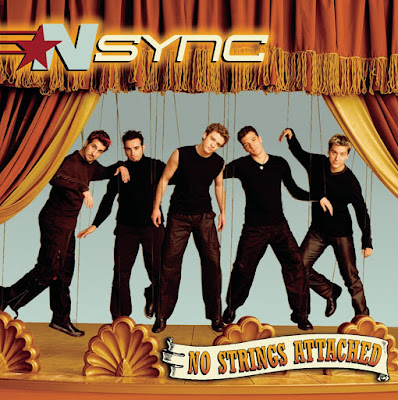March 21, 2000: 'N Sync released their No Strings Attached album.
(sign up to follow by email)
It sells 2.4 million copies the first-weeks; almost double the number of Backstreet Boys' 1999 album, 'Millennium.' 'N Sync's record holds for 15 years until Adele pushes more than 3 million units of '25.'
March 21, 1964: "She Loves You" by the Beatles hit Number 1, taking over from "I Want To Hold Your Hand."
At number 3 the Beatles had "Please Please Me." It was the first time in the history of the Rock Era in which one artist owned the top three songs and the Beatles would continue to do this in various combinations for four straight weeks.
March 21, 1987: The Number 1 spot belongs to "Lean on Me" by Club Nouveau.
In 1987, “Lean On Me” became only the fifth song to become a #1 hit twice, by different artists.
The Bay Area group Club Nouveau joined a strange and select group of pop-chart reanimators. Before them, only Donny Osmond, Grand Funk, the Carpenters, and Bananarama had taken old #1 hits and brought those songs back to the apex of the Hot 100.
Read more: Stereogum
March 21, 1992: The Number 1 song was "Save the Best for Last" by Vanessa Williams.
“Save The Best For Last” remains the biggest hit of Vanessa Williams’ career, reaching #1 on the Billboard “Hot 100” singles chart in March 1992, and staying #1 for five weeks. It won the ASCAP “Song Of The Year” Award for being the most performed song of 1992, and it was nominated for “Song Of The Year” at the Grammy Awards.
Read More: Songwriter Universe
March 21, 1994: Bruce Springsteen wins an Oscar for the "Streets of Philadelphia" song from the Tom Hanks movie Philadelphia.
Philadelphia was the first major studio film to face the AIDS crisis head-on.
Though the industry had lost countless people to AIDS—most famously, Rock Hudson in 1985—there was tremendous reluctance to make a movie about the epidemic, especially one focused on those hardest hit: the gay community. Filming for Philadelphia began in October 1992; by the end of that year more than 194,000 people had died from AIDS in the United States. Just a year later, as the movie opened, the death toll had surged to 234,225.
Read more: Smithsonian Magazine
Bye, Bye, Bye
'N Sync




No comments:
Post a Comment